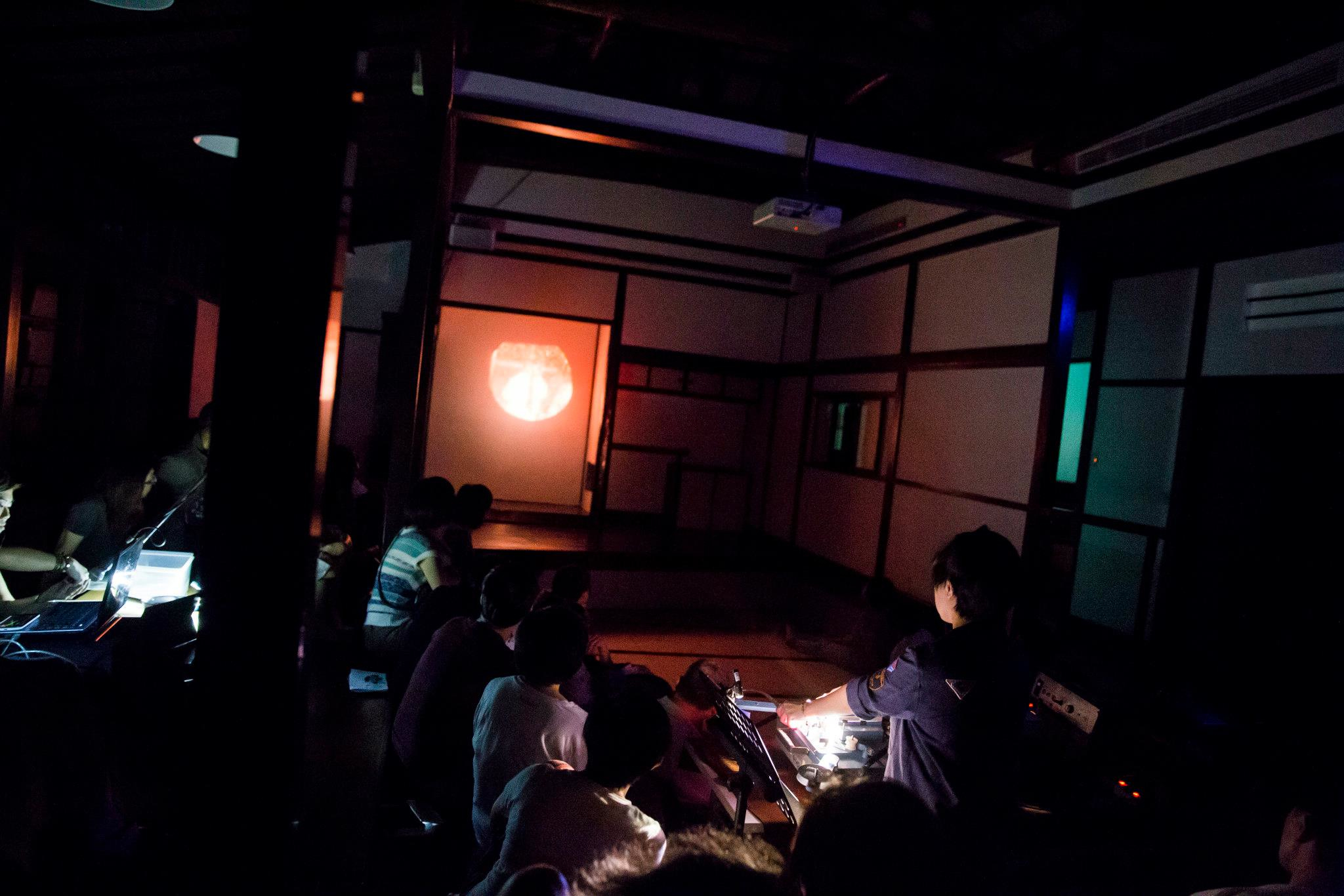小說《山瘟》是一個關於二次世界大戰結束之後當時的馬來亞英軍試圖剿滅共產黨時期的故事,以一種倒敘的方式述說曾經參與其中的祖父和傳說中隊長溫義的種種事跡。如果說這個「演出」有遊戲規則的話,那小說《山瘟》、「現場電影」(Live Cinema)以及(空間)齊東詩舍三者便是。小說《山瘟》,無論是以其為本,還是拆解重構,或呼應或反思提問。我們對於冷戰時期馬來亞共產黨的認知,很容易落入一種浪漫的革命情懷的嚮往。歷史書寫中的空缺被某種「浪漫」塞滿,仿佛那支被遺落的部隊,被中國共產黨不聞不問,被英軍追殺,多重的遺落剩下的是最後留在泰國邊境的落寞身影。我們對於馬來亞共產黨作為一種「失敗者」的想像,被予以了某種叢林中悲劇英雄的形象。然而,對於「失敗者」的提問,在這個演出裡頭尤為重要。小說《山瘟》的敘事在爆裂消解的過程中,歷史的幽魂重新從裂隙中竄逃。班雅明的新天使和歷史的風暴仿佛成了一種在場,歷史的多重對話在一個和殖民歷史攸關的空間重新被啓動。也像古巴導演埃斯賓諾沙(Juan García Espinosa)提出的「不完美電影」(Imperfect Cinema),「既是答案,也是問題,一個透過詢問進而體現自身答案的過程」。
窮劇場approaching theatre
思辨‧行動‧能量
來自高俊耀(馬來西亞)和鄭尹真(台灣)的劇場組合,以窮為本,究本源之心,透過創作和教育臨近劇場的核心,在其中尋找文化的延續,承載社會使命關懷。作品經常以文學閱讀出發,語言風格生猛,展現剛勁的節奏能量,表演本於傳統的靜定內蘊,叩問人在當代生活的處境和異化,以及梳理歷史脈絡的身份思考。教育部份,窮私塾以觀念啟蒙和身心識覺察為工作核心,致力開辦工作坊與長課程,閱讀與實作並進,深耕劇場語彙的審美和思辨。窮以此為奠基,積極聚合方資源,以劇場藝術擴延交流無盡的文化場域,持續美學追索的創作實踐。
——
黎紫書
區秀詒
加卡地圖(章業良、許慧珊)
——
高俊耀、鄭尹真
高嘉謙
高俊耀、區秀詒
吳思鋒
胡心怡
胡錦華
吳欣瑋
莊惠雯、詹雅晴
齊東詩舍
關鍵字
- 戲劇
評審談作品
馬共史像是幽靈,在那裏又好像不在那裏,看著半島上的遺民,相互對視、相互凝望,它的可見仍在歷史畫外。
入圍理由 Reason for Nomination
區秀詒的現場電影〈山瘟〉改編自黎紫書的同名短篇小說,動態影像與文字之間的轉換是核心議題。如何體現馬共作為禁忌史與暴力史的論題,成為兩種不同媒介對話的關鍵。小說敘述游擊隊長山神「溫義」的傳奇故事,野史與口述不停交錯,電影感十足。而現場電影則透過幾台投映機與底片的表演,加上檔案影像的投映和猶如影戲般的聲效部署,投影在牆上的動態影像顯得一片模糊不清,始終在焦點之外。此種創置意圖是非常顯著的:馬共史像是幽靈,在那裏又好像不在那裏,看著半島上的遺民,相互對視、相互凝望,它的可見仍在歷史畫外。提名觀察人—孫松榮
AU Sow-Yee’s live cinema, The Mountain Epidemic, was an adaptation of a novella of the same title by LI Zi-Shu, making the shifting between moving images and text a core issue. How to represent the taboo and violent history of the Malayan Communist Party (MCP) became the key to initiate a dialogue between the two media. The novella recounted the legendary story of the guerilla leader, WEN Yi, who was deemed as a guardian of the mountains. Interwoven with an unofficial and oral history, it had a great sense of cinema. On the other hand, the live cinema was conducted with several projectors and films, combined with the projection of archive images and sound effect design that resembled shadow play, the moving images projected on the wall were blurry and out of focus the entire time. The creative intention was more than obvious: the Malayan Communist Party was like a ghost, possessing an absent presence, always looking at their adherents on the peninsula. While they gazed into each other, its existence was still excluded from history. (Commentator: SING Song-Yong)




